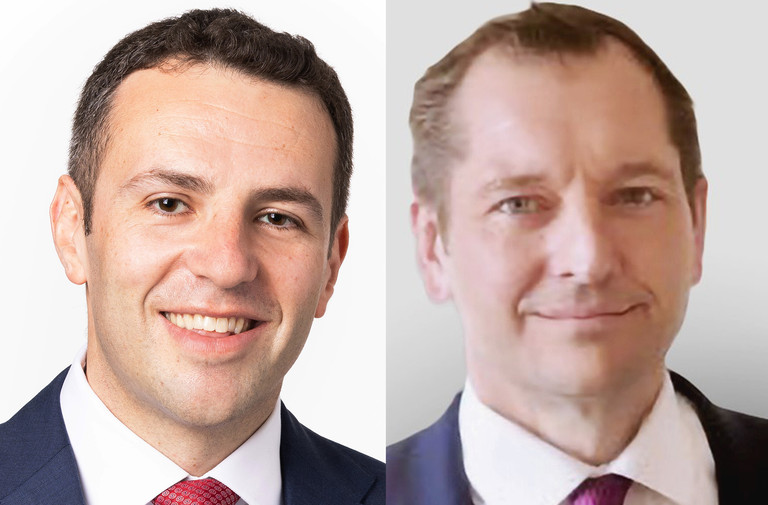How Defense Lawyers Reframed One of Crypto’s Largest Alleged Frauds: The Terraform Labs Case
August 19, 2025 – In one of the most significant legal battles in cryptocurrency history, defense lawyers for Do Kwon, co-founder of Terraform Labs, reframed allegations of a $40 billion fraud tied to the 2022 collapse of TerraUSD and Luna, transforming a narrative of deliberate deception into one of entrepreneurial missteps and market volatility. This high-profile case, culminating in Kwon’s guilty plea on August 12, 2025, in Manhattan federal court, showcases how strategic legal defense can reshape perceptions of complex financial crimes.
The Allegations: A $40 Billion Collapse
Terraform Labs, founded by Do Kwon in 2018, promised investors a stablecoin, TerraUSD, pegged to the U.S. dollar to avoid the volatility typical of cryptocurrencies. However, in May 2022, TerraUSD plummeted below its $1 peg, triggering a catastrophic collapse that erased approximately $40 billion in market value for holders of TerraUSD and its sister currency, Luna. Prosecutors, led by U.S. Attorney Jay Clayton, accused Kwon of orchestrating “one of the largest frauds in history” by making false and misleading statements about the stablecoin’s technology and stability, alleging violations of commodities fraud, securities fraud, and wire fraud.
The government claimed Kwon misrepresented the development and viability of TerraUSD’s algorithmic pegging mechanism, misleading investors about its reliability. Additionally, authorities alleged Kwon diverted investor funds for personal gain, a charge that fueled the narrative of intentional fraud.
The Defense’s Reframing Strategy
Kwon’s legal team, led by attorney Sean Hecker, employed a multifaceted defense strategy that shifted the narrative from criminal intent to systemic challenges and market unpredictability. Their approach included:
- Emphasizing Lack of Intent: The defense argued that Kwon did not deliberately deceive investors but made overly optimistic claims common in the high-risk crypto startup ecosystem. Hecker highlighted Kwon’s belief in Terraform’s technology, framing misstatements as “misguided enthusiasm” rather than fraud. This positioned the collapse as a business failure, not a criminal scheme.
- Highlighting Market Volatility: The legal team contextualized the TerraUSD collapse within the broader volatility of the crypto market in 2022, which saw significant declines across major cryptocurrencies like Bitcoin and Ethereum. By presenting the collapse as part of a market-wide downturn, they diluted the focus on Kwon’s actions.
- Challenging Technical Misrepresentations: The defense leveraged expert testimony to argue that TerraUSD’s algorithmic peg, while flawed, was a legitimate attempt at innovation. They disputed the prosecution’s claim that the technology was inherently fraudulent, emphasizing that stablecoin design was (and remains) an evolving field with inherent risks.
- Negotiating a Plea Deal: Recognizing the strength of the prosecution’s evidence, including Kwon’s false claims about potential business deals (e.g., with the Panama Canal Authority), the defense negotiated a plea agreement. Kwon pleaded guilty to two counts—conspiracy to commit commodities, securities, and wire fraud, and a separate wire fraud charge—securing a promise from prosecutors not to seek a prison term exceeding 12 years, despite federal guidelines suggesting up to 25 years. Kwon also agreed to forfeit $19 million in ill-gotten proceeds and relinquish his interest in Terraform Labs.
- Humanizing the Defendant: Hecker’s statement post-plea emphasized Kwon’s acceptance of responsibility for misleading the Terra community, portraying him as a remorseful entrepreneur rather than a malicious fraudster. This narrative aimed to mitigate public and judicial perceptions of Kwon’s culpability.
Outcome and Implications
On August 12, 2025, Kwon entered his guilty plea in Manhattan federal court, with sentencing scheduled for December 11, 2025. The plea deal, while acknowledging wrongdoing, significantly reduced Kwon’s potential prison time and avoided a prolonged trial that could have exposed him to harsher penalties. The defense’s reframing softened the public narrative, with some industry observers noting that the case highlighted the challenges of regulating nascent technologies rather than solely Kwon’s actions.
The Terraform Labs case underscores broader issues in cryptocurrency enforcement:
- Regulatory Ambiguity: Defense arguments capitalized on the lack of clear U.S. regulations for stablecoins, a point echoed in other crypto cases like the SEC v. Ripple settlement.
- Investor Risk: The case highlighted the high-risk nature of crypto investments, urging better investor education and due diligence.
- Legal Precedent: The plea deal sets a benchmark for future crypto fraud cases, showing that strategic defense can mitigate penalties even in high-stakes prosecutions.
Comparison to Other Crypto Fraud Cases
Unlike the AML Bitcoin case, where Rowland Marcus Andrade was convicted of wire fraud and money laundering for misrepresenting technology and diverting $2 million for personal use, Kwon’s defense successfully avoided money laundering charges. Similarly, the Tornado Cash case, where developer Roman Storm was convicted of unlicensed money transmission but acquitted of sanctions evasion, shows how defense teams can narrow the scope of charges. Kwon’s case stands out for its scale and the defense’s ability to reframe intent, leveraging the complexity of crypto technology to challenge the prosecution’s narrative.
Conclusion
The defense of Do Kwon in the Terraform Labs case illustrates how skilled lawyers can reframe allegations of massive fraud by emphasizing intent, market context, and technological complexity. By negotiating a favorable plea and humanizing their client, Kwon’s legal team mitigated the fallout from a $40 billion collapse, offering a playbook for future crypto fraud defenses. As the crypto industry evolves, such cases highlight the need for clearer regulations and robust investor protections. For more details, refer to coverage from The Hill or CoinDesk.
Sources: The Hill, CoinDesk, U.S. Department of Justice
Disclaimer: This article provides an overview based on available information and does not constitute legal advice. Always consult legal professionals for guidance on specific cases.
